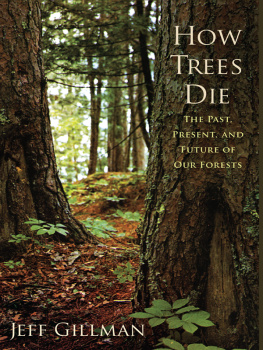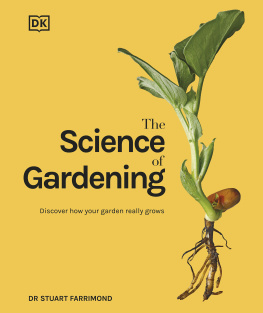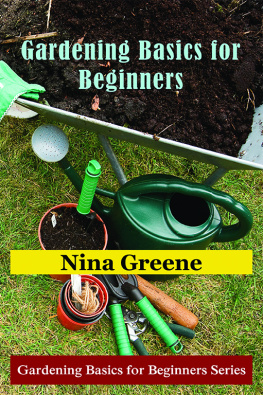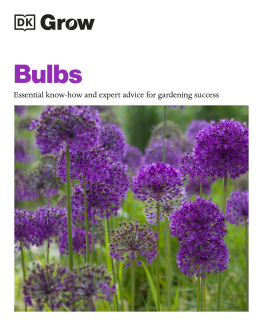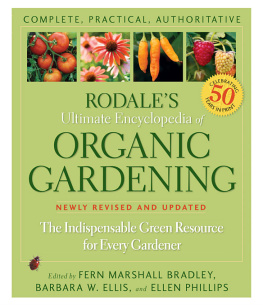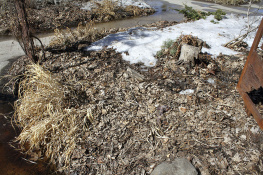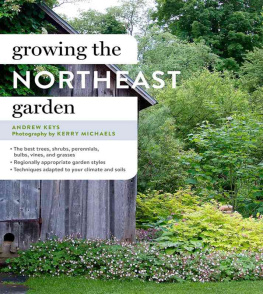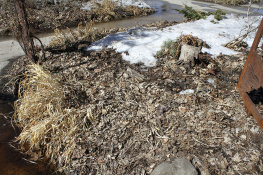Decoding Gardening Advice
Decoding Gardening Advice
THE SCIENCE BEHIND THE
100 MOST COMMON RECOMMENDATIONS
Jeff Gillman & Meleah Maynard

Copyright 2012 by Jeff Gillman and Meleah Maynard.
All rights reserved.
Published in 2012 by Timber Press, Inc.
The Haseltine Building
133 S.W. Second Avenue, Suite 450
Portland, Oregon 97204-3527
timberpress.com
2 The Quadrant
135 Salusbury Road
London NW6 6RJ
timberpress.co.uk
Printed in the United States of America
Library of Congress Cataloging-in-Publication Data
Gillman, Jeff, 1969
Decoding garden advice : the science behind the 100 most common recommendations /
Jeff Gillman and Meleah Maynard. 1st ed.
p. cm.
Includes bibliographical references and index.
ISBN 978-1-60469-220-4
1. Gardening. I. Maynard, Meleah. II. Title. III. Title: Good and bad gardening advice and how to tell the difference.
SB450.97.G55 2011
635dc22
2011013138
A catalog record for this book is also available from the British Library.
For Suzanne,
Catherine, and Clare

For Mike,
who did everything that needed doing
while I wrote
CONTENTS
Organic material Earthworms Vermicompost Soil tests Lime Sulfur Fertilizing and the weather Soil in containers Urine as fertilizer Fertilizing in spring Peat moss Yearly fertilizing Tilling Organic versus synthetic fertilizers Ammonium and nitrate Bacteria and beans Mycorrhizae Balanced fertilizers Pine needles Compost tea Sand
Watering depth and frequency Planting trees and shrubs Time of day Checking soil moisture Overhead watering Watering trees Withholding water Drainage in containers
Insecticidal soaps Timing of pesticide application Homemade deer repellents Organic versus synthetic pest control Homemade insect sprays Corn gluten meal Ladybeetles Glyphosate Controlling small mammals Pesticide shelf life
Organic versus inorganic mulches Mulch placement The necessity of mulching Winter mulch Landscape fabric Wood mulch Nitrogen and wood mulch
Deadheading Hardiness zones Hardening off seedlings Root-bound plants Planting non-natives Perennial beds beneath trees Disease-resistant cultivars When to plant perennials Spacing recommendations Grow lights Light levels Sterilizing containers Dividing and transplanting Phosphorus
Dividing shrubs Pruning Planting depth Planting hole size Soil level Fertilizing Staking Tree wraps Wrapping evergreens Balled-and-burlapped trees Topping trees Dressing pruning wounds Pruning at planting Beating trees Pruning cuts Shearing deciduous shrubs
Pruning fruit trees Eggshells and tomatoes Crop rotation Thinning seedlings Weeding Hybrid versus nonhybrid seeds Treated lumber Planting in rows Lunar gardening Companion planting Vegetables in containers Light levels
Dog spots Yard waste disposal Mower height Cutting grass Seeding Low-input grasses Sod versus seed Borax Light levels Lawn chemical safety Fertilizers and pollution Organic fertilizers Grass clippings Brown lawns Synthetic fertilizers and insecticides Overwatering
ACKNOWLEDGMENTS
Many thanks to all of the kind and generous master gardeners, farmers, horticulturists, professors, garden writers, entomologists, and researchers who offered opinions, advice, and their own stories of gardening successes and failures. Your humor and wisdom helped shape this book, and we are deeply grateful. Special thanks to master gardener Theresa Rooney, whose encyclopedic gardening knowledge and good cheer are unparalleled. Thanks, as always, to Chad Giblin for helping Jeff out while he was off writing. We also deeply appreciate the thoughtful work of our copyeditor, Lisa DiDonato Brousseau.
INTRODUCTION
As an associate professor of horticulture at the University of Minnesota (Jeff) and a master gardener (Meleah), we field questions all the time about everything from watering and soil preparation to fertilizing, pruning, and chemical use. We didnt realize how many dos, donts, and shoulds there are to gardening until people started asking us these questions, half of which we couldnt answer without poring over garden books and research papers ourselves.
One afternoon we were talking about the sorts of things were asked most often, and we were shocked to realize how much advice gardeners at all levels are bombarded with. Who could possibly make sense of it all? What bothered us most was knowing that the confusion caused by this mountain of sometimes contradictory advice may turn gardening into a joyless, by-the-numbers exercise. Some would-be gardeners get scared, thinking they will never figure it all out. Others, believing that gardening is not going to be all that fun or relaxing after all, turn to seemingly less complicated pastimes, like jogging or tossing horseshoes.
And, so, fueled by a love of horticultureand Meleahs aversion to sports (Jeff likes football)we decided to write this book. In these pages we offer our fact-based thoughts on the usefulness and worthiness of some of the dos, donts, and shoulds we hear most often. It was no easy task to whittle these bits of advice down. You may not find every piece of advice youre wondering about, but we do hope to clear up a good share of the confusion thats out there.
As we dissected these various pieces of advicegood or badone of our objectives was to explain the reasoning and the research behind them. How often do you just do something in the garden because you have heard its what you should do? Water deeply and infrequently, for example, or stop fertilizing in late summer. Why? Its important that gardeners know why we should do some things, but should not do others.
This book covers a wide range of subjects, such as soil, mulch, water, trees and shrubs, and vegetables. Each chapter is divided into three sections by the quality of the advice: Good Advice, Advice Thats Debatable, and Advice Thats Just Wrong. This way, if you just want to check out some good advice, you can quickly flip to that chapter and read that first section, saving the rest for another time when you might be in the mood for a good debateor a laugh. By reading the Advice Thats Debatable sections, you will start to understand some of the nuances of gardening. These sections help make clear how well-intentioned gardening advice can be a little off the mark. A case in point is tilling. If you type the word tilling into Google, youll find just as many vehement supporters of the practice as detractors. Whos right? Can both sides be right? And if they are both right, how does that work? You will find the answer in the chapter on soils. In the last section, Advice Thats Just Wrong, youll laugh, youll cry, and you may even shake your fist in the air. But we bet youll find some surprises no matter how long you have been gardening.
For each piece of advice, we explain the practice itself before going into what will happen if you follow the advice, how to do it, and, finally, our bottom-line opinion or recommendation. As you read our thoughts on all of this advice, keep in mind that none of it is written in stone, which is for many people what makes gardening so attractive and fun. What we offer is the best information we can give based on current science, research, and, in most cases, experienceours and that of our fellow gardeners. Of course, science is always changing, and one persons experience often differs from anothers. So if you want to try something we are not too keen on, do it. Our mission here is not to stop you from doing certain things in the garden, but to provide good information so you can make your own decisions.
Next page

